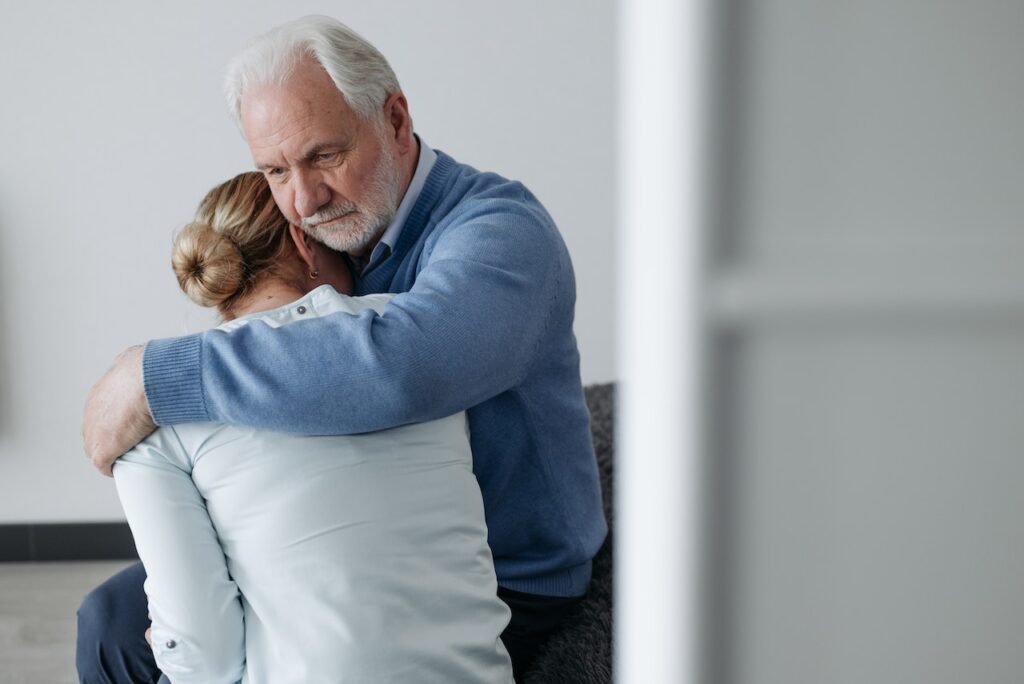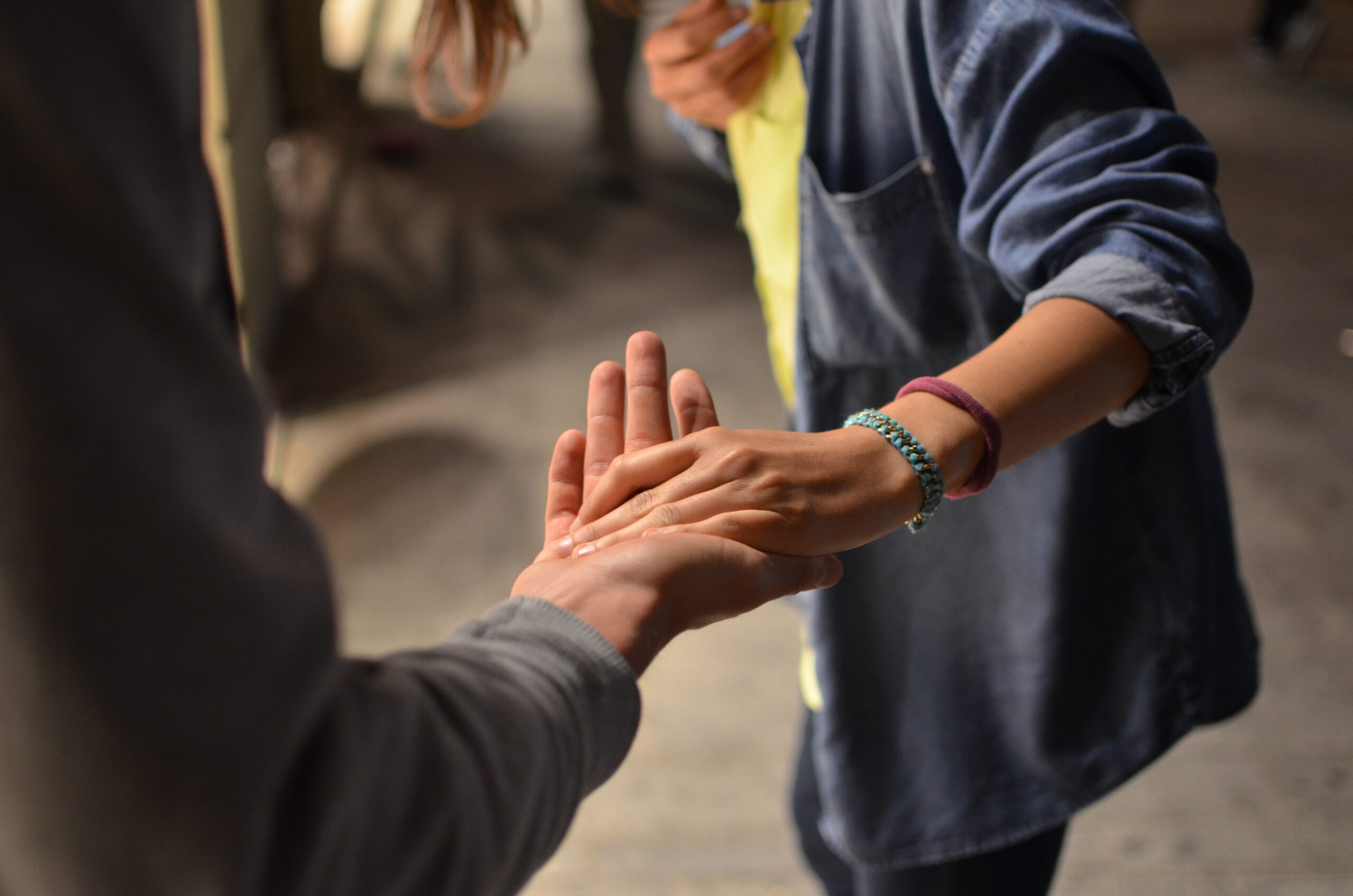Many of my clients face the end of their lives with a calm and peaceful understanding. However, this isn’t always the case. Sometimes they get angry and lash out at loved ones. I support the right of death doulas and loved ones to establish boundaries. Abuse is never okay. But when we’re caring for difficult people and find ourselves struggling, Unconditional Positive Regard (UPR) can help.
Everyone Deserves a Good Death
Caring for everyone, including those who challenge us, is important for several reasons.
Human Dignity and Respect
Treating my clients with care and compassion, regardless of their behavior or personality, is a reflection of my fundamental belief in human dignity. Respecting the inherent worth of each client, even those who may be challenging is a core value in my ethical and moral framework.
Emotional Closure
Providing care to difficult individuals at the end of life offers a sense of emotional closure for both the caregivers and the person receiving care. It allows for the opportunity to reconcile relationships, express forgiveness, or find a resolution to any lingering conflicts.
Promoting Well-Being
When I provide care to difficult individuals, it contributes to their overall well-being, both physically and emotionally. Even challenging personalities may have unmet emotional needs or unresolved issues that, when addressed with care, can positively impact their end-of-life experience.
Professional Ethics
For death doulas like me, ethical guidelines often emphasize the importance of providing care to all individuals without discrimination. This includes individuals with difficult personalities, mental health issues, or challenging behaviors. Upholding these ethical standards is essential for maintaining trust in my communities.
Impact on Caregivers
Caregivers and doulas benefit from UPR. It can be personally rewarding and contribute to our sense of purpose and fulfillment. Additionally, it can prevent burnout by fostering a compassionate and empathetic approach to caregiving.
Fostering Connection
At the end of life, human connection becomes particularly important. Caring for difficult clients allows me to establish a connection, understand their experiences, and provide comfort. This connection is meaningful for me, other caregivers, and the person receiving care.
Spiritual or Philosophical Values
If you have strong spiritual or philosophical beliefs, caring for everyone, including difficult people, aligns with the values of love, compassion, and forgiveness. You can choose to see it as an expression of these values in the face of life’s inevitable end.
Providing care for everyone, even difficult individuals, at the end of life is rooted in principles of compassion, respect, and the recognition of shared humanity. It acknowledges the complexity of human relationships and the potential for growth, healing, and reconciliation even in the final stages of life.

What Is Unconditional Positive Regard?
UPR is a concept created by humanist psychologist Carl Rogers. Death doulas practice this while caring for difficult people, which means we accept a person just as they are, with no conditions.
This isn’t always easy.
Sometimes clients might share with me some views I find horrific. Perhaps a dear old woman reveals that she had harmed her children, years earlier. A kind man is filled with regret for the crimes he committed in his youth.
Putting that negative reaction aside can feel strange. Almost like you’re betraying a code of ethics or values. A part of yourself.
For me, a doula serving someone at the end of their life, UPR is vital.
As a former political organizer, for progressive causes in Florida, I’ve had some practice with this. Years ago, I worked with someone whose political views clashed with my own. She believed in ideas that had been proven false, time and again, yet she clung to them in a way that seemed petty and cruel.
Holding her in positive regard was one of the most challenging professional moments of my life. I had to practice neutral smiles and think happy thoughts, concentrating on the good work we were doing together rather than what she thought about world affairs.
It required patience and understanding. I had to work at it. Like almost everything, practice makes better.
What UPR Doesn’t Mean
UPR doesn’t mean I’m always friends with my clients. It doesn’t mean I always feel a connection or even a bond with them. Positively regarding someone doesn’t imply I condone their actions or beliefs. There is no approval process happening.
It helps to remember that, like so much of my work serving those at end-of-life, this isn’t really about me. It’s about the client and their needs.
Focusing on them, rather than my opinions, is helpful when switching that UPR button on. And keeping it there.
How To Care For Difficult People
Death doulas and caregivers can support someone without agreeing with them. We will have good days and bad days, but overall we can do positive work without feeling negative about people with whom we have opposing beliefs.
Here are some ways to help us get there.
Separate the Person from Their Actions
Look into their eyes. Hold their hands. See their humanity. Smile. Be present in the moment, rather than thinking about what bothers you.
Find Support
I helped organize a death doula collective where I live in Chicago so we can provide peer-to-peer support and discussions. I also think mentors or therapists can provide a space for us to vent and explore effective coping strategies.
You can keep the details to yourself, and maintain your client’s privacy, but talking in general to someone, especially someone who understands, can help you feel better.
Let Go
Are you expecting too much or judging yourself? Try closing your eyes for a moment to breathe. In and out. Let go of any expectation you have to be super-human. Treat your thoughts with nonjudgmental unattachment.
Unplug
Perhaps the news or social media is contributing to your negativity somehow. Therefore, try taking a break and see if that helps.
Get Educated
Many doulas, therapists, and spiritual leaders have gone through what you’re experiencing. As a result, their words can inspire. Find books at your local library, or even look online for resources that speak to you.

Exercise
Running, a fierce workout in the gym, or a simple walk around the block does wonders. Try to get outdoors during the day, even if only for a few minutes. Soak up some vitamin D.
Take a Break
Burnout is real. Taking a true break, where you relax and savor the joy of family or friends, helps caregivers think better about everyone else.
In the End
Sometimes people facing the end of their lives need a supportive presence to explore themselves. This typical life review allows them to think about their choices. The mistakes. The triumphs. Without judgment.
In short, UPR allows doulas caring for difficult people to provide a more peaceful transition. For everyone. No matter who they are. If you need support with UPR, contact me at Anitya Doula Services today.



3 thoughts on “Caring For Difficult People At End of Life”